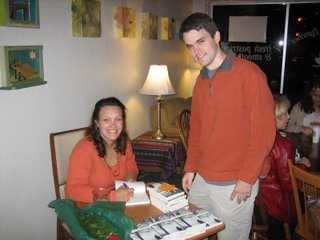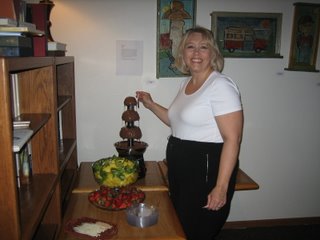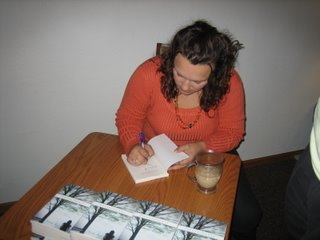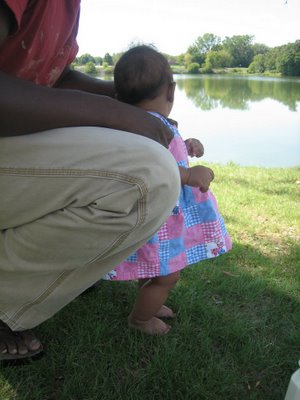
After living through multiple coup attempts my husband Nate is too accustomed to hearing bad news from home. But with a father and a brother still on the ground in the capital we’re especially uneasy when Chad, his country of origin, makes national news here in the states.
Personally though, I was stunned to hear the following piece on Monday's NPR program:
Day to Day, September 4, 2006 · Explorer Mike Fay reports a staggering loss: During a survey of Chad while on assignment for the National Geographic Society, he stumbled on at least 100 dead elephants near an elephant preserve, killed for their ivory tusks. Their huge, bloated bodies were left behind for predators and vultures.
"You can see very clearly the trunks are sliced off the heads and the tusks are chopped out, [and] big pools of blood," Fay says. "There is no doubt about it, these boys are being poached."
The areas where elephants can be protected are getting smaller, he says. "Thirty years ago, there was a Texas-sized area that had about 300,000 elephants -- but over the past three decades, poachers have killed almost all the elephants."
Fay believes part of the problem is the unrest in neighboring Sudan. Roving bands of horsemen cross the border from the troubled Darfur region to poach elephants.
"The only way to keep this park protected is to up the guard force and get organized outside the national park, where the elephants go in the wet season," Fay says.
http://www.npr.org/templates/story/story.php?storyId=5760602Now don’t get me wrong, I think Ivory poaching is detestable and I’m always concerned about preserving the earth’s resources, but this article seemed like some sick joke. For any of you who do follow the news you may be aware of the ongoing human rights crisis going on in the Darfur region of Sudan. You may also be aware that Darfur and Chad share a border and many of the same regional problems due to pandemic violence. But in the interest of objectivity here is what World Vision has to say about this part of the globe.
“As many as 10,000 people have died monthly since the conflict began in Darfur, Sudan, mainly due to pervasive – and preventable – disease and hunger. Brutal ethnic conflict has driven over 2 million people into homelessness, their huts and villages pillaged, burned, and destroyed.Victims end up living in ramshackle huts in numerous camps along the edge of the Sahara. Displaced families have meager access to food, water, clothing, and shelter.Health care is also extremely limited. And killings and sexual assaults are rampant.Families barely survive, living in conditions that World Vision has rarely seen in its many years of serving the needy. The lives of thousands of children are threatened, their fathers, homes, and communities lost. They face a bleak future.”
Although its obvious that life is worth precious little in these parts of Sub-Saharan Africa, it saddens me that the slaughter of a hundred elephants was deemed more unfortunate and news-worthy than the lives of hundreds of thousands of Southern Sudanese and Chadians. Ivory more precious than life? I thought that was a part of our history, especially from such an “enlightened” source.

 Thank you Heather and the Marsceau family who lent us their atmosphere and great taste.
Thank you Heather and the Marsceau family who lent us their atmosphere and great taste. Mmmm Chocola
Mmmm Chocola te
te


 A special thanks to Jennifer Ruish
A special thanks to Jennifer Ruish
 Jennifer Ruisch is a freelance writer in Des Moines, Iowa. Before working as a writer, she worked as a crisis counselor for at-risk youth in Chicago. She married her childhood sweetheart in May 2005.
Jennifer Ruisch is a freelance writer in Des Moines, Iowa. Before working as a writer, she worked as a crisis counselor for at-risk youth in Chicago. She married her childhood sweetheart in May 2005.






